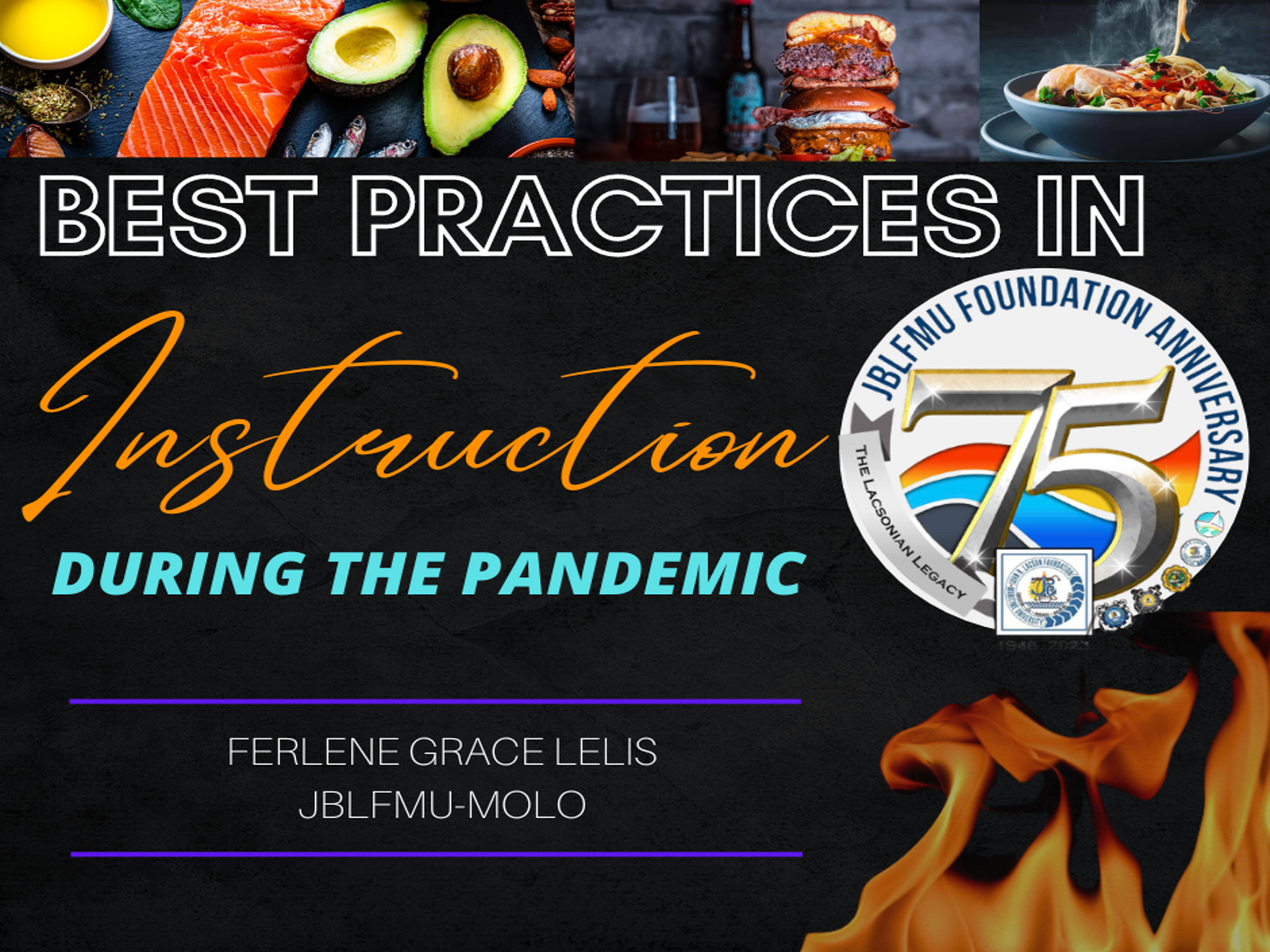Best Practices in Instruction during Pandemic: Practicum in BS Cruise Ship Management

by Ferlene Grace Lelis
THE COVID-19 EFFECT TO PRACTICUM INSTRUCTION
Traditionally, practicum programs are conducted in-person to give students first-hand supervised experience and directly learn from professional industry mentors in the vicinity of affiliated industry partners.
However, the COVID-19 Pandemic has brought about restrictions and considerations which have resulted to the halt of traditional on-site hospitality sector internship.
THE JBLFMU-MOLO BSCSM PROGRAM INITIATIATES CHANGES
Placing priority on health and safety, the institution has elected to implement alternative courses of instruction that will substitute for the internship experience to foster learning continuity grounded on academic excellence.
Flexible practicum modalities have been put into place.
BSCSM Flexible Practicum Training Program


Parent’s Consultative Meeting and Orientation
Parents are enjoined to attend a scheduled Parent’s Consultative Meeting and Orientation to give them an overview of the course requirements, expectations, and preparations necessary for their children to pass the practicum training program.
They are presented with the various instruction and training alternatives designed to facilitate learning progress despite the then ongoing restrictions in industry immersions.
The orientation also serves as a platform for parents and guardians to have their concerns addressed regarding factors such as online training partner selection, financial obligations, safety, and security.
Parent’s Consultative Meeting via Zoom



Practicum Orientation
The practicum orientation is a walk-through of the training program. The goal of which is to help the students prepare for their course by providing resources, guidelines, and instructions for the effective performance of their tasks throughout the semester.

STUDENT PORTFOLIO
The Practicum Coordinator or Adviser will prepare Online or Virtual Folders where the students portfolio will be uploaded and shall be reflected as well in the Practicum 1 Booklet.





Webinar / Online Conference Participation
A series of webinars on topics related to the course are to be recommended for student’s participation. University initiated webinars are also conducted with invited speakers who have experience in the various departments of the cruise and hospitality industry.
The aim of which is to augment knowledge through the insights and inputs shared by industry professionals. A reflection paper will be submitted for every online seminar attended.



Virtual Practicum Training with Industry Partner
In lieu of an on-site hotel training, an e-modular and virtually assisted practicum training program with a CHED recognized training partner or host company will be undertaken
Based on the agreed upon parameters during the parents’ consultative meeting.



Midterm Compliance
A set of activities and outputs are designed by the practicum host company. The students can access materials for asynchronous learning through the industry training partner’s Learning Management System (LMS) e-Learning portal.
Students’ performance will be assessed through:
weekly learning logs
practice activities
assessment questions.
qualitative training evaluation sheets and
A Training Certificate will be granted upon the completion of the online practicum program as proof of training compliance.

Business Plan Formulation
Students were required to undergo academic and co-curricular pursuits and other work-related learnings that can be undertaken online or virtually.
A collaboration with the Entrepreneurship in Tourism and Hospitality (ETH) course, students were grouped and tasked to formulate and present a business plan, concept paper, or feasibility study.
students presented and defended their outputs to a panel for evaluation.






